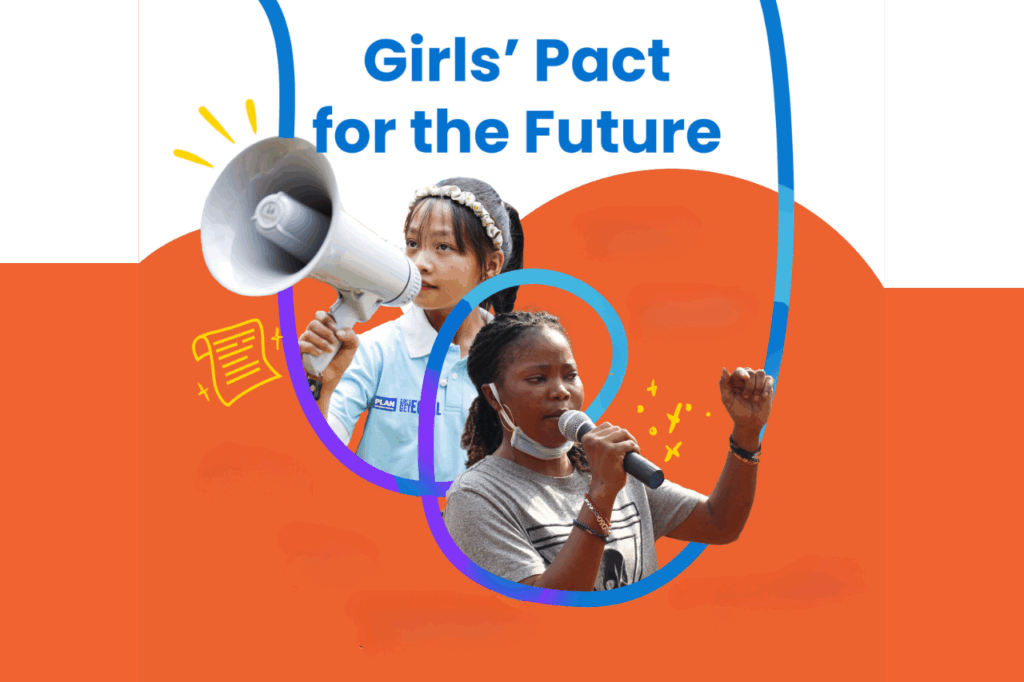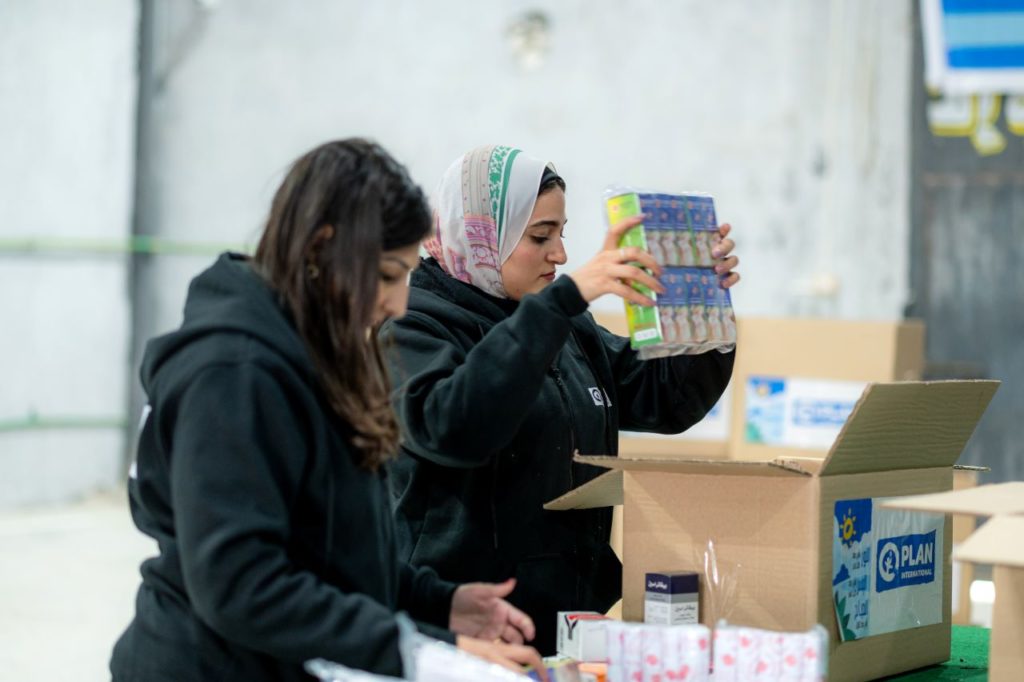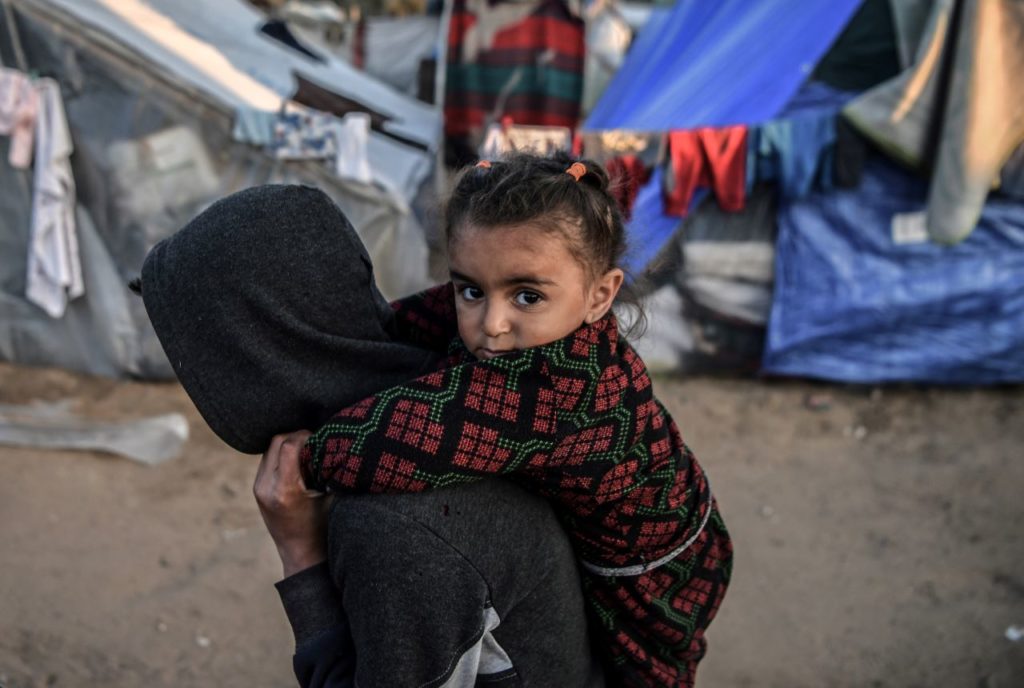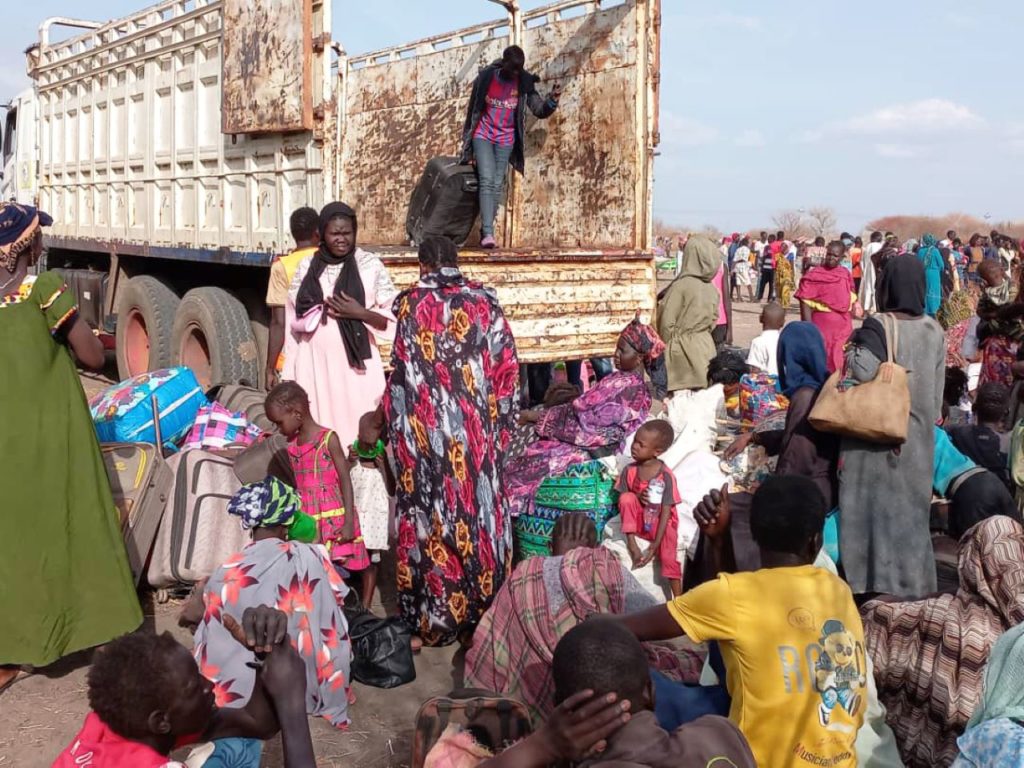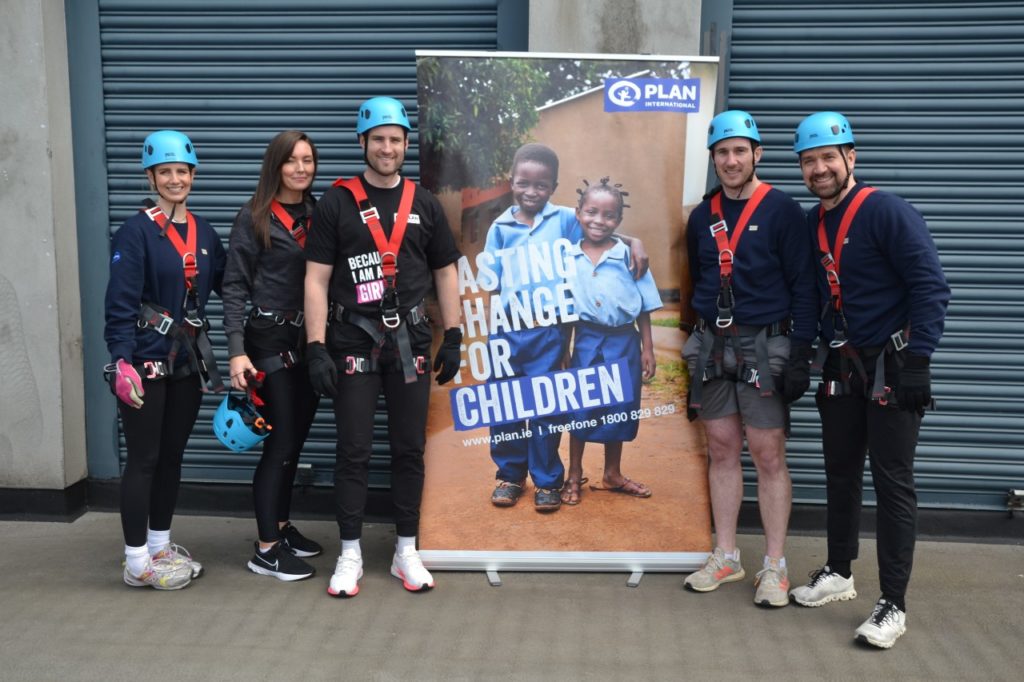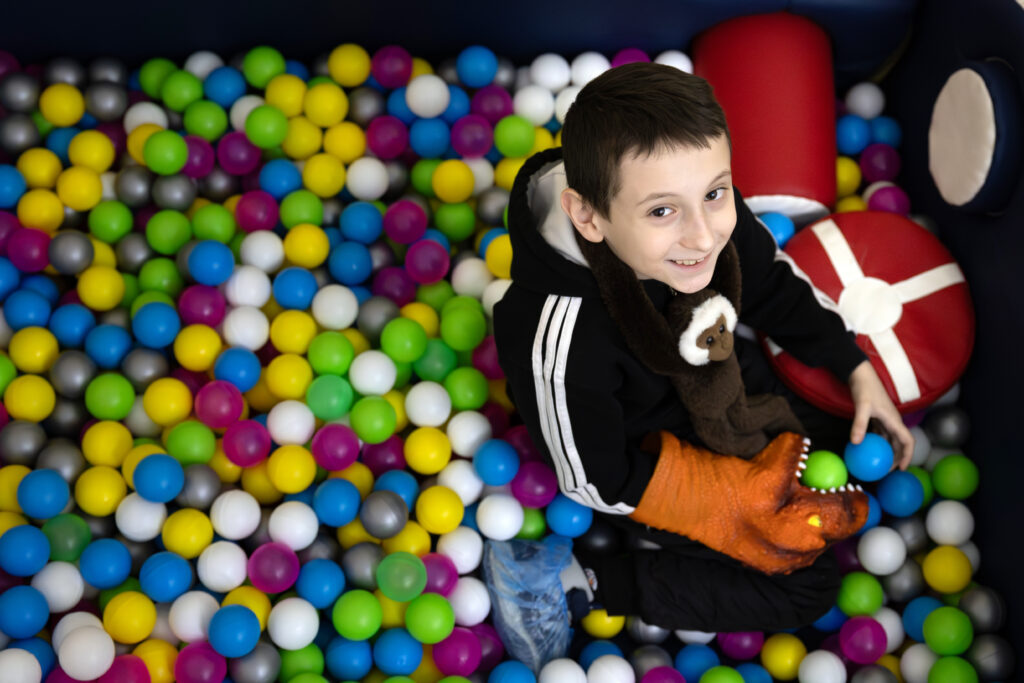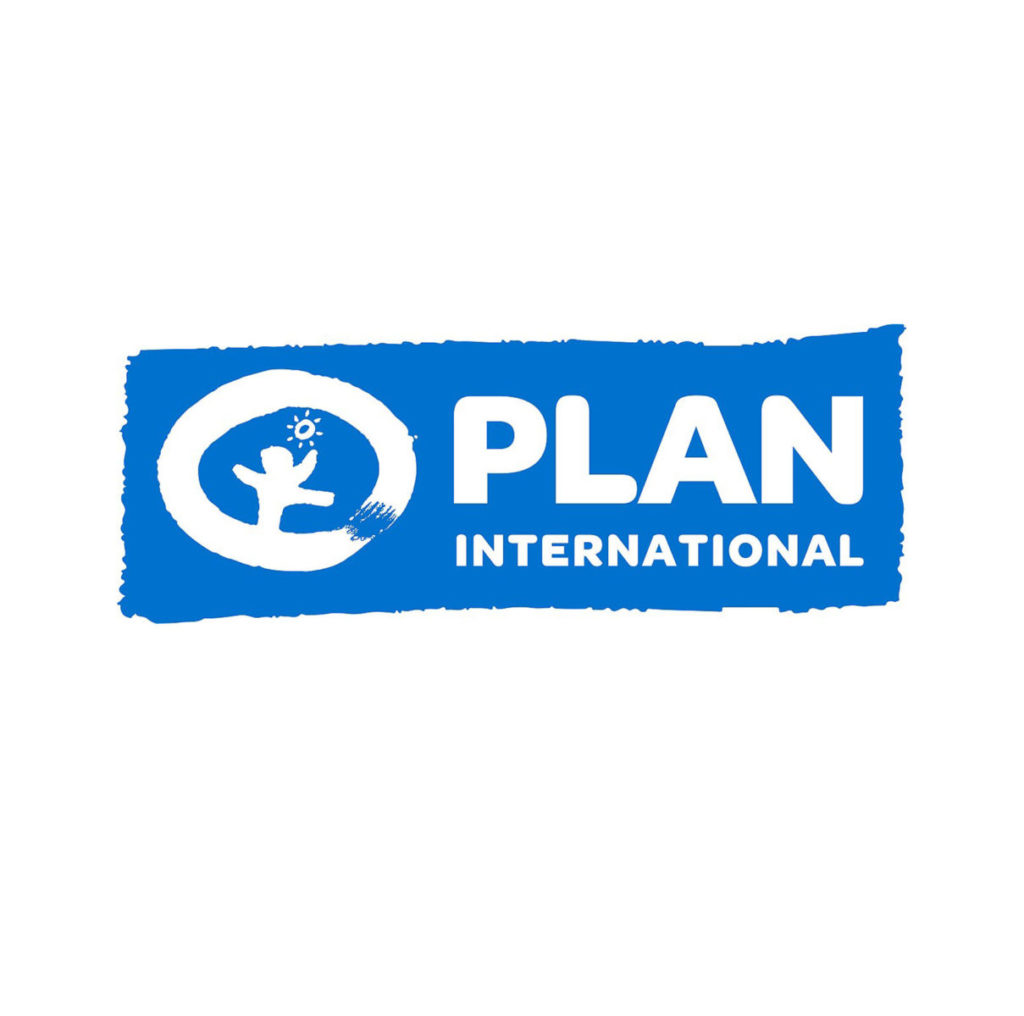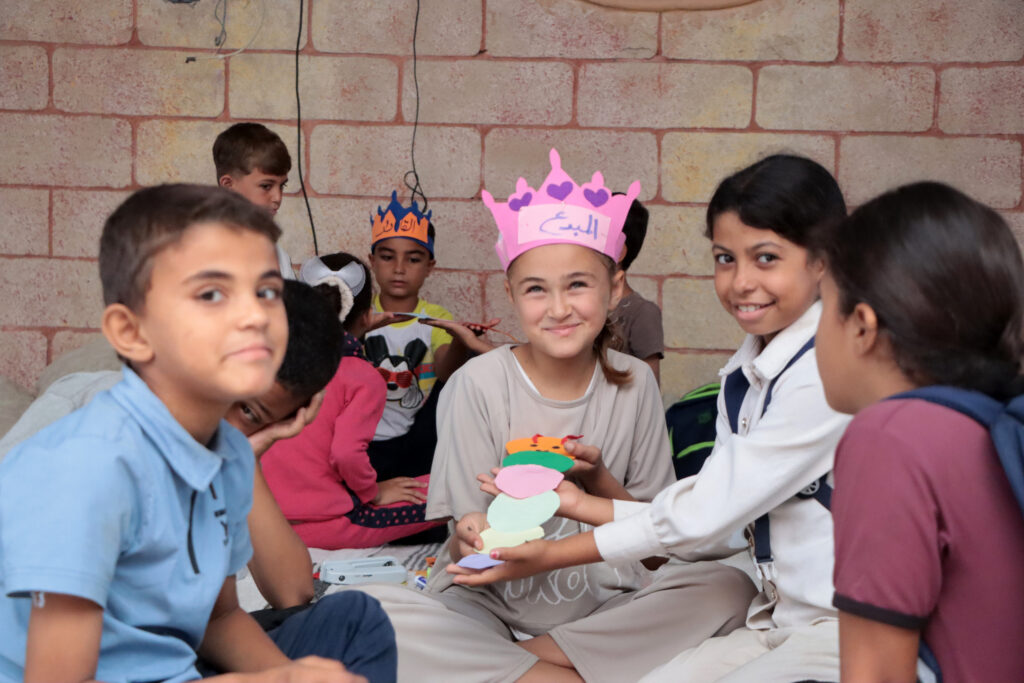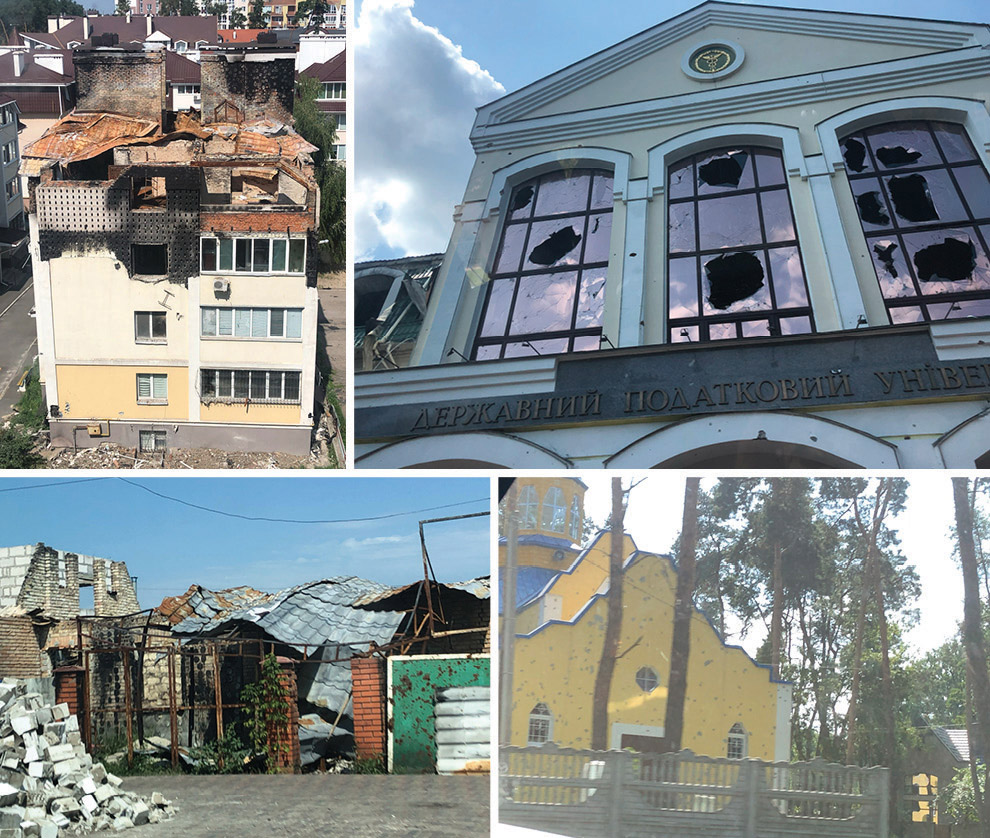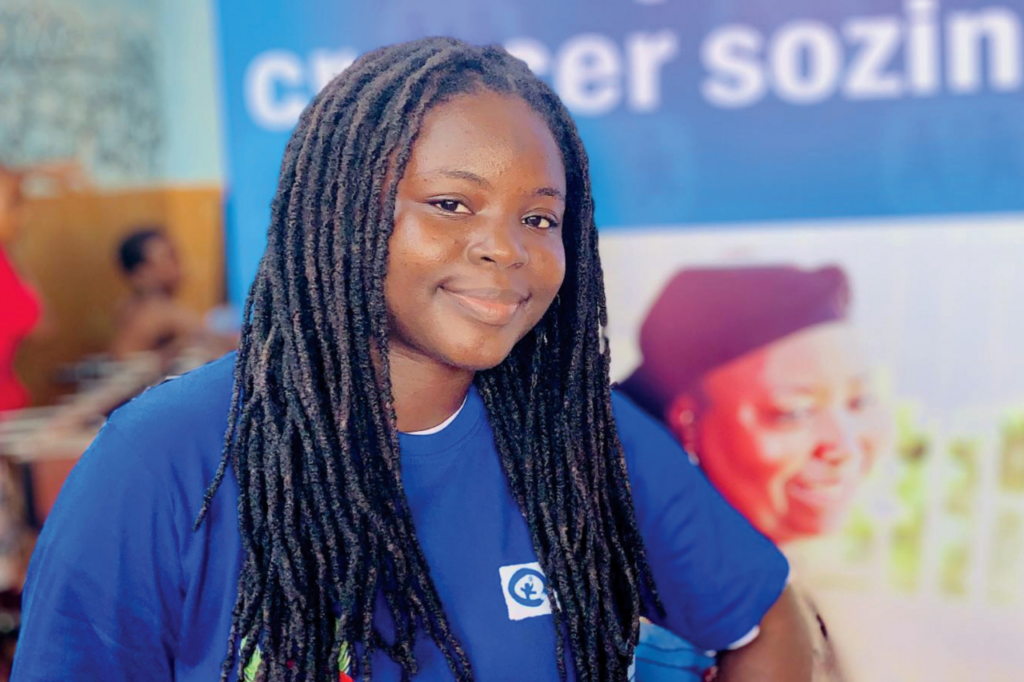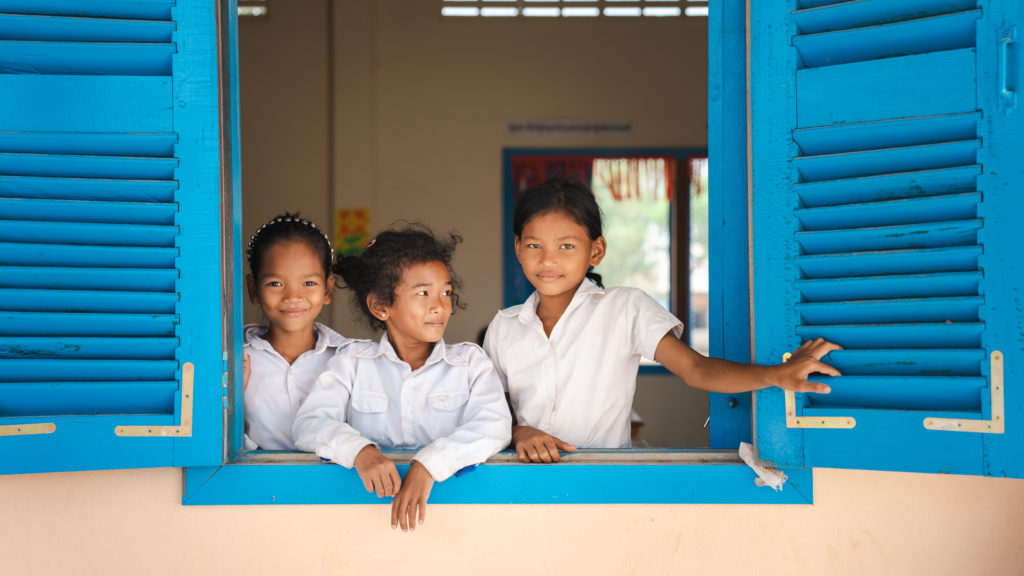On the first ever International Day to Protect Education from Attack, our Emergencies Officer, Stacey Dunne, and our Desk Officer, Deirdre Murray, reflect on the situations in Cameroon and Mali and how Plan International is working to support access to education in areas of conflict.
Following a decision by the UN General Assembly, the 9th of September 2020 marks the first ever International Day to Protect Education from Attack.
School should be a safe space for children and young people; a place where they can fulfil their potential, and build relationships, knowledge, and skills. The global Coronavirus pandemic left 1.6 billion children out of school in 2020 – while many are in the process of returning, some will never return to school. For many others it is not only the pandemic that has made school unsafe or that will prevent them from returning to education. It is the conflict that rages in several countries around the world which spills over into education settings, leaving children, teachers and other education personnel vulnerable to attacks and violence.
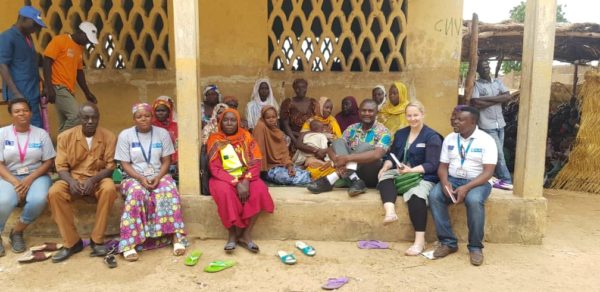
The Global Coalition to Protect Education from Attack released a report in 2020, Education Under Attack, which highlights attacks on educational institutions across 37 countries profiled between 2017 and 2019. The types of violence reported on include direct attacks on schools themselves, attacks on students and teachers, the military use of schools and universities and the recruitment or abuse of children in conflict settings either on their way or at school.
Two countries profiled in the report are Cameroon and Mali -Plan International Ireland supports education programmes in both of these countries. Below is an overview of the situation in each country, as well as the solutions proposed in the Safe Schools Declaration.
CAMEROON
The conflict
For over 6 years now, Cameroon has been the second most affected country in the Lake Chad basin by internal conflict, violence, and insecurity spill over from the Boko Haram insurgency in Nigeria. As a result of ongoing conflict in its neighbouring countries, Cameroon hosts over 291,000 refugees from Central African Republic (CAR) and almost 120,000 from Nigeria.
In the Far North, violence and insecurity linked to Boko Haram and counter-insurgency operations have caused internal and cross-border displacement, deteriorated socio-economic conditions, and led to widespread destruction of houses, infrastructure, roads, markets, health, and education facilities. 1.9 million people, almost half of the population of the region, need assistance in the Far North, where 74% of its population was already living below the poverty line prior to the incursion in 2014. The volatile security situation has restricted food access and availability by limiting agricultural activity, decreasing livelihood options, and weakening trade.
In late 2016, longstanding grievances in the Northwest and Southwest regions escalated into widespread protests. This has resulted in widespread internal violence and an increased number of Internally Displace People (IDPs). For a long time, the population of the Northwest & Southwest regions have held grievances concerning marginalisation by the Francophone-dominated government. These grievances, including planned changes to the school curriculum from English to French, led to wide-spread protests in October 2016 and in 2017. The situation escalated greatly when the Cameroonian security forces responded with force. This led to growing support in the region for independence from Cameroon as an English-speaking Republic of Ambazonia. On foot of this, the regions have seen an increase in clashes between the Non-State Armed Groups (NSAGs) and the Cameroonian security forces, with civilians caught in the middle.
Attacks on education
According to the Education Under Attack report, Cameroon had one of the highest incidences across the profiled countries of attacks on children and teachers. During the reporting period there was an increase in reported incidences of abductions and killings of teachers and students. Between 2017 and 2019, more than 700 students and education personnel were harmed in Cameroon.
Children attending school have been targeted and kidnapped for ransom and UNICEF reports that more than 1 million school-aged children remain out-of-school. Contributing to this number is a widely held belief that education is being used as a political propaganda tool. These out-of-school children are exposed to all forms of violence and are at risk of increased levels of trauma and vulnerability. Added to the complete breakdown of basic serves in the region, the number of displaced people continue to rise with high levels of protection and human rights concerns. The rate of severity of the crisis is demonstrated by regular regional lockdowns declared by the NSAGs, and the fact that school closures are entering their fourth year.
Plan International’s Response
Given the security constraints in the Northwest & Southwest regions, Plan International’s projects focus on Child Protection in Emergencies (CPiE) and Gender Based Violence (GBV) prevention and assistance for the vulnerable, displaced and host communities. Needs assessments conducted by Plan International in the regions identified significant Child Protection and GBV risks, and many abuses committed against children including attacks on children, attacks on schools, and forced recruitment of youths into non-state armed groups (NSAG).
Through the projects, Plan International contributes to increased access to a protective environment by providing Child Friendly Spaces with Psycho-Social Support, Case Management & referral services, contributes to strengthening the Community Based Child Protection mechanisms, prevention of and response to Sexual and Gender Based Violence (SGBV), in addition to access to basic Water, Sanitation and Hygiene (WASH ) facilities in Child Friendly Spaces. Adolescents girls and women are also provided with life skills training including Menstrual Hygiene Management (MHM) and awareness raising.
Where access allows, Plan International carries out numerous Education projects in the Far North, one project specifically targets beneficiaries in the Minawao refugee camp and the surrounding host communities. The Minawao Refugee Camp in the Far North was opened in 2013 and has a population of almost 70,000 individuals. As a result of the crisis and despite ongoing efforts their education has been disrupted and continues to experience a shortage of adequate schools, school kits, and teaching materials. For those in school, and due to various reasons, high levels of absenteeism in available schools is still a challenge.
Plan International continues to work with government institutions such as the Ministry of Employment and Vocational Training (MINEFOP) and Ministry of Basic Education (MINEDUB), to ensure all children ages 6-14 have access to quality and inclusive education (formal and non-formal), that alternative education opportunities for young children (3-5), dropout/out of school adolescents and youth aged 15-24 are provided all within a safe protective and non-violent learning environment.
MALI
Conflict
Like Cameroon, insecurity and fragility has increased in Mali in recent years, in contrast with the overall global trend of increasing security. Mali, a land locked country in West Africa, was one of the richest countries, home to great emperors whose wealth came mainly from the region’s position in the cross-Sahara trade routes between West Africa and the north. Today Mali is ranked by the UNDPs Human Development Index at 184 out of 189 countries, meaning that it is one of the poorest countries in the world. Plan International Ireland supports educational programmes in the remote north of Mali in the Timbuktu region, which was subjected to an Al Qaida led insurgency and rule for a number of years. More recently secular control has returned to the area, however radical groups are still in the area, leading to infrastructural degradation, displacement of people and general insecurity. Following a recent coup d’etat on 18 August, the country is now being run by a military junta.
Attacks on education
In northern, central and south-western Mali, there were reports during the 2017-2019 period of armed groups threatening teachers for using the secular curriculum in schools – this led to the closure of thousands of schools who feared violent repercussions. Many teachers were killed, and armed groups instilled fear in communities by looting and setting fire to schools.
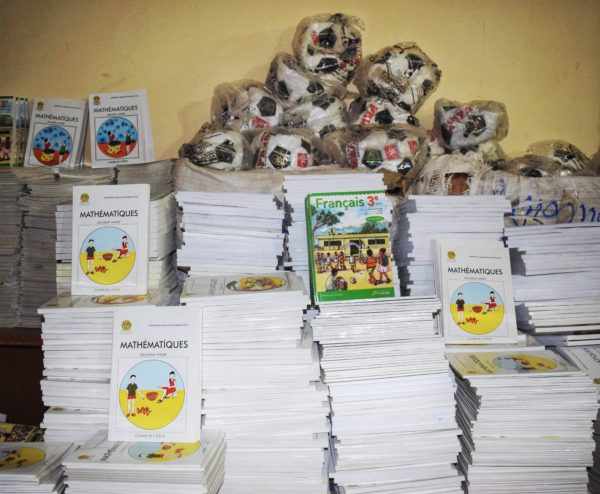
Plan International’s Response
Plan International supports the delivery of pre and primary school education to schools in the Timbuktu Region of Northern Mali. Interestingly, the first university in the world was established in Timbuktu in the 10th century with a very rich literary output, including works covering the history of Africa and southern Europe, religion, mathematics, medicine and law. There were manuscripts detailing the movement of the stars, possible cures for malaria and remedies for menstrual pain. Today, the educational system is severely challenged, with many schools closed, others in poor conditions, and due to displacement, many children do not attend school.
In 2017, 67% of its population was estimated to be under the age of 25. With such a high youth population, there is a considerable need for access to schools. In many of the locations where Plan works there can be up to 100 children in a classroom, and the teachers have been trained in a methodology of teaching large classes, where the more academically able students are drawn on to support teaching.
What else are countries doing?
The Safe Schools Declaration is an inter-governmental political agreement which provides a blueprint for how best to protect education from attack and ensure that schools and education facilities are safe, positive spaces for children, young people and education personnel alike – even in times of conflict. The Declaration was opened for endorsement in Norway in 2015, and since then 104 States have signed on to the Declaration. Countries that have endorsed the Safe Schools Declaration must also ensure that its implementation is gender-sensitive, as girls and women are often affected differently and, as such, have different needs.
